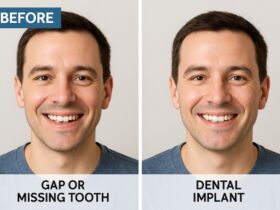Table of Contents:
- The Broad Knowledge Foundation of Health Science
- Open Doors: Career Pathways for Graduates
- The Value of Interdisciplinary Skills
- Opportunities in Research, Public Health, and Technology
- Key Competencies Employers Seek
- Preparing for a Dynamic Healthcare Workforce
- Steps to Maximize Degree Versatility
The Broad Knowledge Foundation of Health Science
A degree in health science delivers a strong knowledge base that integrates natural sciences, behavioral studies, and applied health principles. This academic structure creates a holistic understanding of healthcare systems and patient needs. Students gain insight into anatomy, physiology, disease prevention, ethics, and health promotion, which form the building blocks for countless healthcare careers. Choosing an online bachelor of health science allows learners to develop foundational competencies in demand across multiple health sectors and job settings.
At Northern Kentucky University, students are exposed to essential topics such as research methods, public health strategies, and evidence-based practice. This well-rounded education prepares them for adaptability in a rapidly changing field where professionals must continually integrate new knowledge into their roles.

Open Doors: Career Pathways for Graduates
Health science is recognized for unlocking a vast range of career paths. Graduates find roles in hospitals, clinics, research institutes, government agencies, and nonprofit organizations. With a strong science and healthcare systems foundation, they can pursue positions such as healthcare administrator, medical sales representative, health educator, research assistant, or community health advocate. The degree’s versatility also allows for seamless transition into specialized graduate programs, including physical therapy, occupational therapy, public health, and more.
The Value of Interdisciplinary Skills
One of the strongest advantages of a health science degree is the development of interdisciplinary skills. Students learn to problem-solve, work in collaborative teams, and adapt their communication for various audiences. This is vital, as professionals often interact with providers, patients, researchers, and policymakers. According to Health Affairs, the healthcare workforce needs individuals who can bridge gaps between technology, clinical care, and patient engagement, making health science graduates especially attractive to employers.
Opportunities in Research, Public Health, and Technology
Health science graduates are uniquely prepared for work in evolving fields such as medical research and public health. They are equipped to understand biostatistics, epidemiology, and health informatics, allowing them to contribute to evidence-based decision making and innovation within health systems. Advancements in digital health and telemedicine have opened further pathways for those comfortable with technology.
Key Competencies Employers Seek
Employers looking for new hires increasingly prioritize critical thinking skills, adaptability, communication, and digital literacy. Health science-trained professionals can analyze problems from multiple angles, interact sensitively with diverse populations, and adopt new tools quickly. These strengths make them valuable in direct patient care, vital support roles, and leadership positions throughout healthcare organizations.
Preparing for a Dynamic Healthcare Workforce
With changes in medical technology, healthcare delivery, and population needs, the demand for versatile professionals continues to grow. A health science background makes it easier to pivot into new opportunities or shift career direction as the landscape evolves. Whether advancing within a current role or pursuing further education, the skills gained through this degree offer long-term value and career resilience.
Steps to Maximize Degree Versatility
Graduates can maximize the value of their health science education by seeking practical experiences, such as internships or research projects, networking with industry professionals, earning certifications in areas of interest, and staying current with industry trends. Being proactive in continuing education and developing digital health competencies also increases marketability. Ultimately, a health science degree is a springboard to a wide spectrum of opportunities, equipping graduates for growth and success no matter where they choose to impact healthcare.




